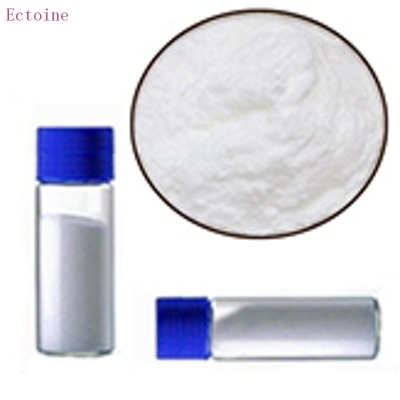-
Categories
-
Pharmaceutical Intermediates
-
Active Pharmaceutical Ingredients
-
Food Additives
- Industrial Coatings
- Agrochemicals
- Dyes and Pigments
- Surfactant
- Flavors and Fragrances
- Chemical Reagents
- Catalyst and Auxiliary
- Natural Products
- Inorganic Chemistry
-
Organic Chemistry
-
Biochemical Engineering
- Analytical Chemistry
- Cosmetic Ingredient
-
Pharmaceutical Intermediates
Promotion
ECHEMI Mall
Wholesale
Weekly Price
Exhibition
News
-
Trade Service
A study published June 10 in the Proceedings of the National Academy of Sciences (PNAS) revealed the molecular mechanisms behind stevia's high-strength sweetness, and the results could be used to design new calorie-free products without any adverse aftertaste.
study was led by the University of Washington at St. Louis.
Although the genes and proteins responsible for stevia synthesis biochemistry are almost entirely known, according to the authors of the new study, this is the first published three-dimensional structure for the production of stevia RebA protein, the main component of stevia sugar.
Joseph Jez, co-author of the study and a professor of art and science biology, said: "If someone has diabetes or obesity and needs to remove sugar from their diet, they can switch to synthetic sweeteners, such as aspartas or saccharin, that are chemically synthesized, but all of which have a sugar-independent odor.
of course some people have their own health problems.
Jez continued: "Stevia sugar and its associated molecules are naturally present in plants and are more than 200 times sweeter than sugar.
they have been consumed in Central and South America for centuries and are safe for consumers.
large food and beverage companies are looking to the future and plan to reduce sugar and calories through a variety of products in the coming years to meet the needs of consumers around the world.
used X-ray crystallology to determine the structure of the RebA protein.
their analysis shows how RebA is synthesized by a key plant enzyme and how the chemical structure required for this high-strength sweetness is biochemically constructed.
photo source: PNAS In order to make something 200 times sweeter than a single glucose molecule, plant enzymes decorate the core terpene stent with three special sugars.
, this super-sweet taste from stevia plants can also cause unnecessary taste disadvantages.
Jez said: "For me, the sweet taste of stevia is accompanied by a licked aluminum foil, and many consumers experience this slightly metallic taste.
" is unique to the main molecules in plant leaves, namely stevia and RebA, whose chemical structure touches the taste-like subjects on the tongue, triggering sweetness, but they also touch the taste-like bodies that trigger other flavors. Professor Jez said:
RebA is abundant in stevia plants and is the first product produced by the plant because it is easy to purification in large quantities, so let's call it 'Stevia Sugar 1.0'.
but there are other related compounds in the leaves, which are different in structure and have no aftertaste, but can give off a sweet taste.
those are 'stevia leaf 2.0'.
" new protein structure information can help improve sweeteners.
Jez said: "We can use snapshots of the RebA protein to guide protein engineering to adjust the type or pattern of sugar in stevia sugars.
this can be used to explore the chemical space between 'sweet' and 'disgusting'.
also have molecules in other plants that are not sweeteners but produce a strong sweetener.
we can use the information that found the stevia plant to find these details.
" paper link:







